

"Hiç şüphesiz ki Antalya dünyanın en güzel yeridir"
Mustafa Kemal ATATÜRKÇevre, Şehircilik ve İklim Değişikliği Bakanlığının atık azaltım hedefleri doğrultusunda; Antalya Büyükşehir Belediyesi, Entegre Atık Değerlendirme Geri Dönüşüm ve Bertaraf Tesisleri ile Düzenli Depolama Sahası Yapım ve İşletilmesi İşi projelerini hayata geçirmiştir.
Küresel sorun teşkil eden katı atıkların yönetimi ve sürdürülebilir çevre anlayışıyla planlanan Entegre atık yönetimi doğrultusunda 5 merkez ilçe (Muratpaşa, Kepez, Konyaaltı, Aksu, Döşemealtı) ile birlikte Kemer, Serik, Korkuteli, Elmalı, Kumluca ve Finike ilçelerimizde oluşan evsel katı atıkların günümüz teknolojisiyle bertaraf edilmesi, biokütlenin yenilenebilir enerji kaynağı olarak kullanılarak elektrik enerjisine dönüştürülmesi amaçlanmıştır. Kızıllı Entegre Atık Değerlendirme, Geri Dönüşüm ve Bertaraf Tesisimizin hayata geçirilmesi ile birlikte 11 ilçemizde oluşan evsel katı atıkların ileri teknolojiler ile bertarafı sağlanmaktadır.
Kızıllı Entegre Atık Değerlendirme, Geri Dönüşüm ve Bertaraf Tesisinde;
2020 yılında 724.995 ton evsel katı atık bertarafı gerçekleştirilmiş ve biokütleden 138.678 MWh elektrik enerjisi üretimi gerçekleştirilmiştir.
2021 yılında 764.660 ton evsel katı atık bertarafı gerçekleştirilmiş ve biokütleden 151.963 MWh elektrik enerjisi üretimi gerçekleştirilmiştir.
Tesis nihai olarak 4.000 ton/ gün evsel katı atığın işlenebileceği 28,27 MW Enerji Üretimi ve 1.820 ton/gün Fermantasyon (Biyometanizasyon) kapasiteli olarak inşa edilmiştir.
Kızıllı Düzenli Depolama Sahasında tamamlanarak devreye alınan Entegre Atık Değerlendirme, Geri Dönüşüm ve Bertaraf Tesisleri ile Düzenli Depolama Sahası yapımı ve işletilmesi işi kapsamında Çevre Dostu ve Sıfır Atık Hedefi ile hayata geçirilen Proje ile Antalya’nın çöpünü çevreye zarar vermeden bertaraf ederken devletin kaynakları kullanılmamış ve Yap İşlet Devlet Modeli ile yapılmıştır. Türkiye’de öz kaynak harcanmadan işletme maliyeti ödemeden gelir elde edilen tek tesis durumundadır. Aynı zamanda AR-GE çalışmaları ile üretilen enerji miktarının arttırılması için atık ısı yeniden enerji üretim döngüsüne dahil edilmektedir.
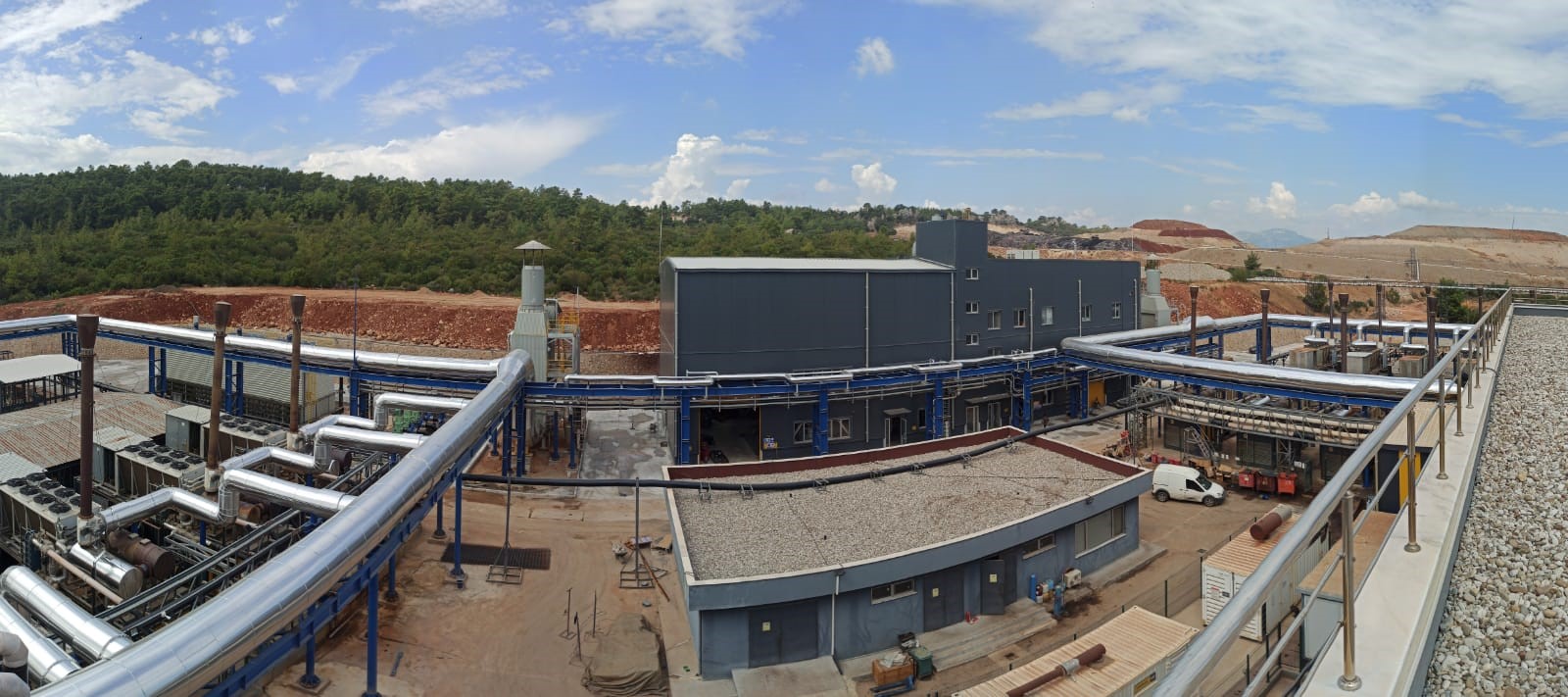
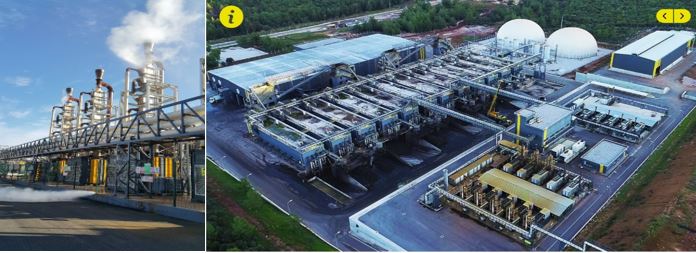
Atık Isıdan Enerji Üretim Tesisi, 4.500 m2 alanda kurulmuş olup, Atık Isı Kazanları, Buhar Türbini, Kondenser, Soğutma Kulesi ve Su Hazırlama Ünitelerini içerecek şekilde yapılandırılmıştır.
Atmosfere atılan atık ısının kolektörler yardımıyla kazanlar ve buhar türbininde değerlendirilerek geri dönüşümü neticesinde mevcut sistemde üretilen enerjiye ilaveten 2,8 MW daha ek üretim yapılmaktadır. Bu üretim yaklaşık 9.000 meskenin elektrik tüketimini karşılayacak değerdedir. Yüksek sıcaklık ve debideki atık ısımızı 460 C ‘den 170 C ‘ye düşürerek küresel ısınmadaki termal etkimizi minimize etmiş bulunmaktayız.
İnşaat yapımı Şubat 2021’de başlamış olup Eylül ayında test üretimlerine geçilmiştir. Atık ısıdan buhar türbini ile enerji üreten Ülkemizdeki ilk ve tek katı atık tesisidir.
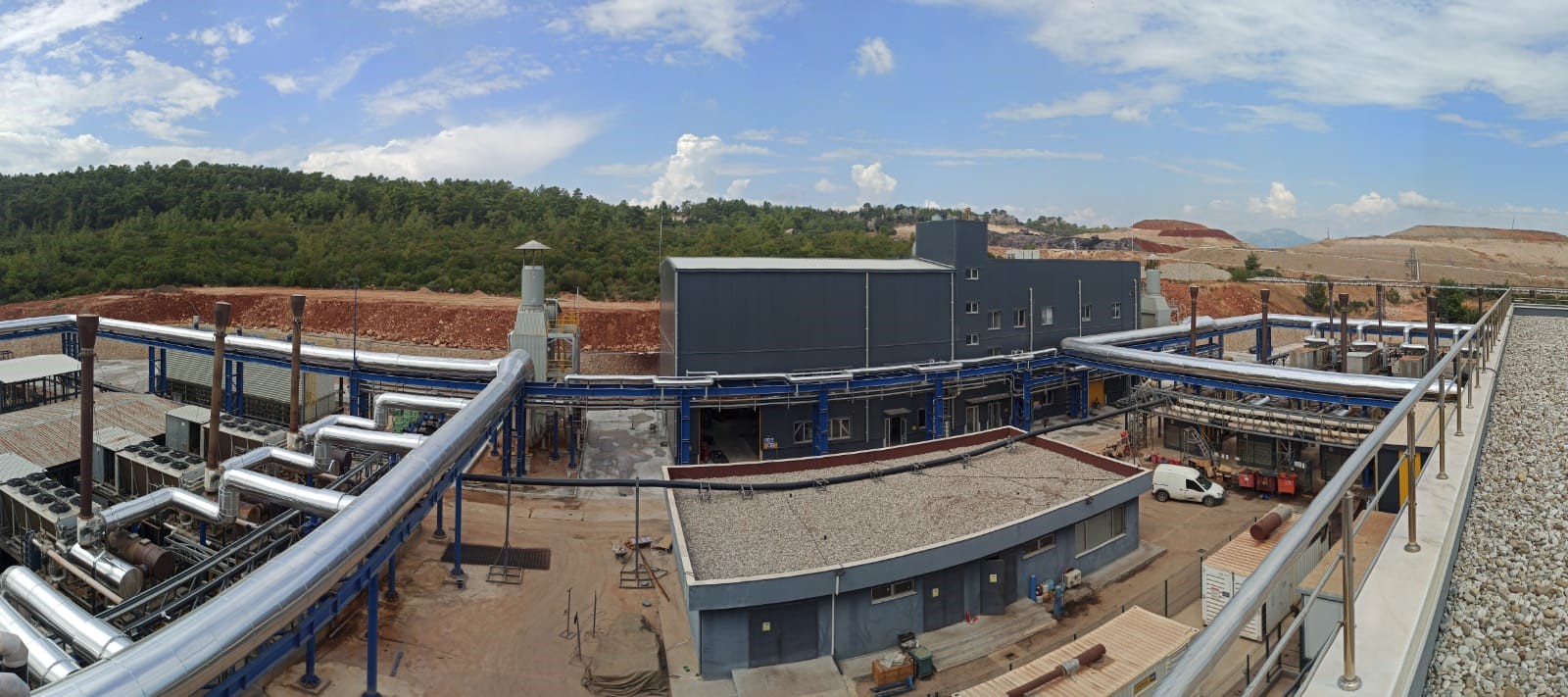

2. Alanya Entegre Katı Atık Değerlendirme, Bertaraf ve Enerji Üretim Tesisi
Antalya’nın Doğu ilçelerinde (Alanya, Gazipaşa, Gündoğmuş, Akseki, İbradı) oluşan evsel katı atıkların entegre sistem ile bertarafıyla depolamanın en aza indirilerek mevcut alanın kullanım ömrünü uzatmak ve aynı zamanda organik atıkların yenilenebilir enerji kaynağına dönüştürülmesiyle elektrik enerjisi olarak ekonomiye kazandırılması hedeflenmiştir.
Alanya Entegre Katı Atık Değerlendirme ve Bertaraf Tesisimizde;
2020 yılında 66.458 ton evsel katı atık bertarafı gerçekleştirilmiş ve biokütleden 1.064 MW elektrik enerjisi üretimi gerçekleştirilmiştir.
2021 yılında 159.756 ton evsel katı atık bertarafı gerçekleştirilmiş ve biokütleden 15.086 MW elektrik enerjisi üretimi gerçekleştirilmiştir.
Projemiz kapsamında; günlük 1.000 ton çöp kapasiteli mekanik ayırma tesisi, 420 ton kapasiteli biyometanizasyon tesisi ve 5,6 megavat kapasiteli enerji üretim tesisi kurulmuştur. Projenin uygulanması ile küresel ısınmaya neden olan metan gazının atmosfere salınmasının önüne geçerek sürdürülebilir çevre anlayışı yaratılmaktadır.
Proje ile kaynağında ayrıştırılamayan ambalaj atıklarının tesiste ayrıştırılması, organik atığın işlenerek enerji üretimi ile ekonomiye kazandırılması hedeflenmiştir. Aynı zamanda AR-GE çalışmaları ile üretilen enerji miktarının arttırılması için atık ısı yeniden enerji üretim döngüsüne dahil edilmektedir.
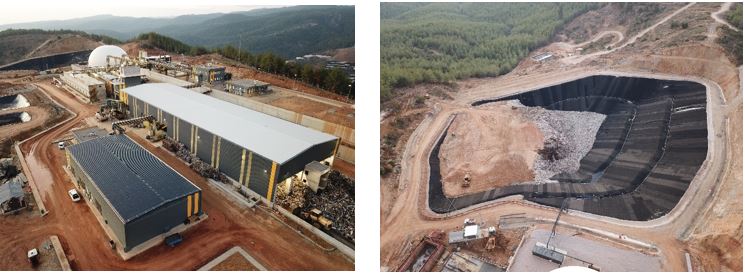
3. Alanya Yumru Düzenli Depolama Sahası ve Enerji Üretim Tesisi İşletilmesi İşi
Belediyemiz bütçesinden herhangi bir ödeme yapılmadan yüklenici tarafından Yumru Düzenli Depolama Tesisinde rehabilitasyon gerçekleştirilmiş ve depo gazından enerji üretimi için 2,8 MW Kurulu güce sahip Enerji Üretim Santrali kurulmuştur. 12 Temmuz 2020 tarihi itibariyle evsel nitelikli katı atık alımı durdurulmuş olup, kapatılan depolama sahasında üretilen elektrik enerjisi giderek azalmaktadır.

4. Manavgat Katı Atık Düzenli Depolama Sahası ve Enerji Üretim Tesisi
Manavgat Belediyesi mücavir alan sınırları dahilinde oluşan evsel nitelikli katı atıklar Manavgat ilçemiz Kızıldağ Köyü Göğü Mevkii hudutları dahilindeki Katı Atık Ayrıştırma ve Düzenli Depolama Tesisinde Düzenli Depolama yöntemiyle bertaraf edilmekte ve depo alanından çıkan metan gazından elektrik enerjisi elde edilmektedir.
Manavgat Katı Atık düzenli depolama sahasında 3 adet İç yanmalı Gaz Motoru bulunmakta olup tesis kurulu güç kapasitesi 3,6 MW/saat dir. Üretilen enerji ile Belediyemize gelir sağlanmaktadır.
Manavgat Enerji Üretim Tesisimizde;
2021 yılında 116.889 ton evsel katı atık bertarafı gerçekleştirilmiş ve biokütleden 18.412 MW elektrik enerjisi üretimi gerçekleştirilmiştir.
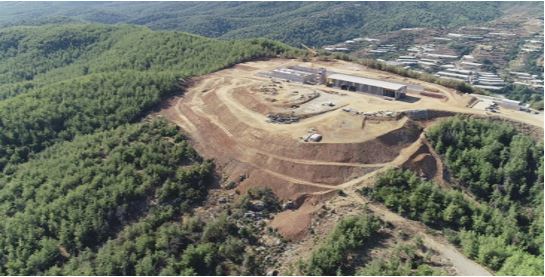
|
ANTALYA BÜYÜKŞEHİR BELEDİYESİ |
|||||
|
4 BİYOGAZ + 1 ATIK ISIDAN ENERJİ |
KURULU GÜÇ (MWe) |
YILLIK ORT. ENERJİ MİKTARI (MWh/Yıl) |
AYLIK ELEKTRİK İHTİYACI KARŞILANABİLECEK ORT. HANE SAYISI |
AZALTILAN KARBON EMİSYON |
KARBON YUTAĞI AĞAÇ SAYISI |
|
ÜRETİM TESİSİ |
|
|
|
MİKTARI(ton CO2e) |
|
| TOPLAM | 40,36 | 378.082 | 137.300 | 597.500 | 1.427.000 |
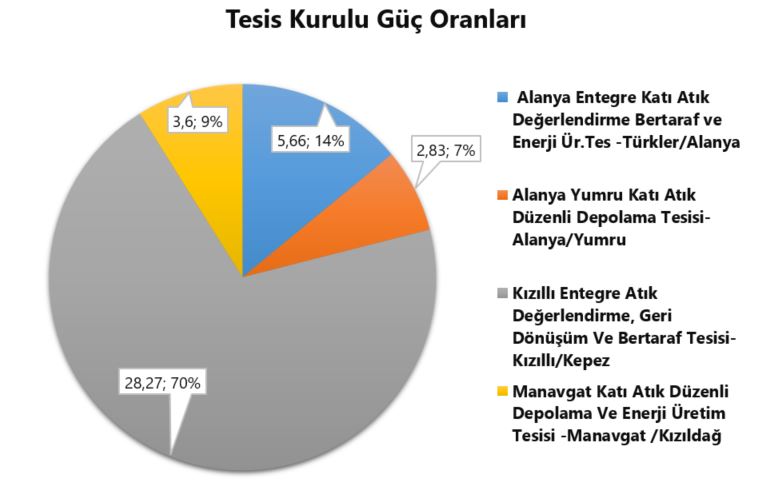
5. Katı Atık Transfer İstasyonları
Antalya genelinde aktarma istasyonları ve atık taşıma tırlarımız ile şehir merkezlerimizden 7/24 alınan evsel nitelikli katı atıklar, Düzenli Depolama Sahalarımıza ve Katı Atık Bertaraf ve Entegre tesislerimize taşınarak ulaşımdaki trafik yükünün ve sera gazının azaltılması yanı sıra yakıt, iş gücü ve zaman tasarrufu sağlanmaktadır.
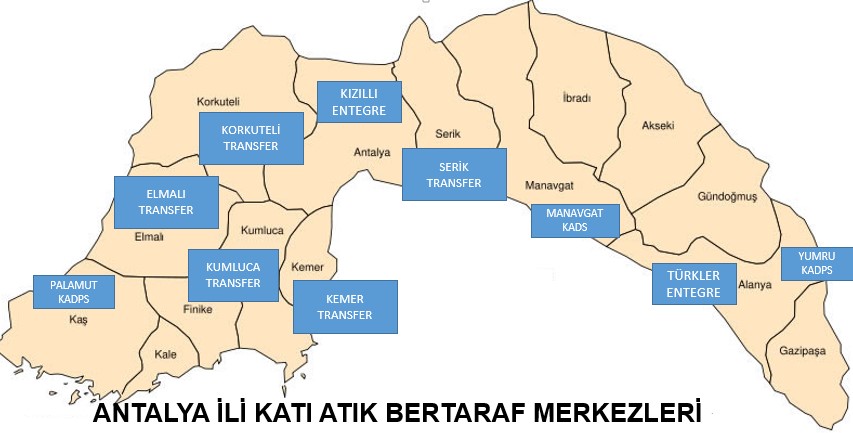
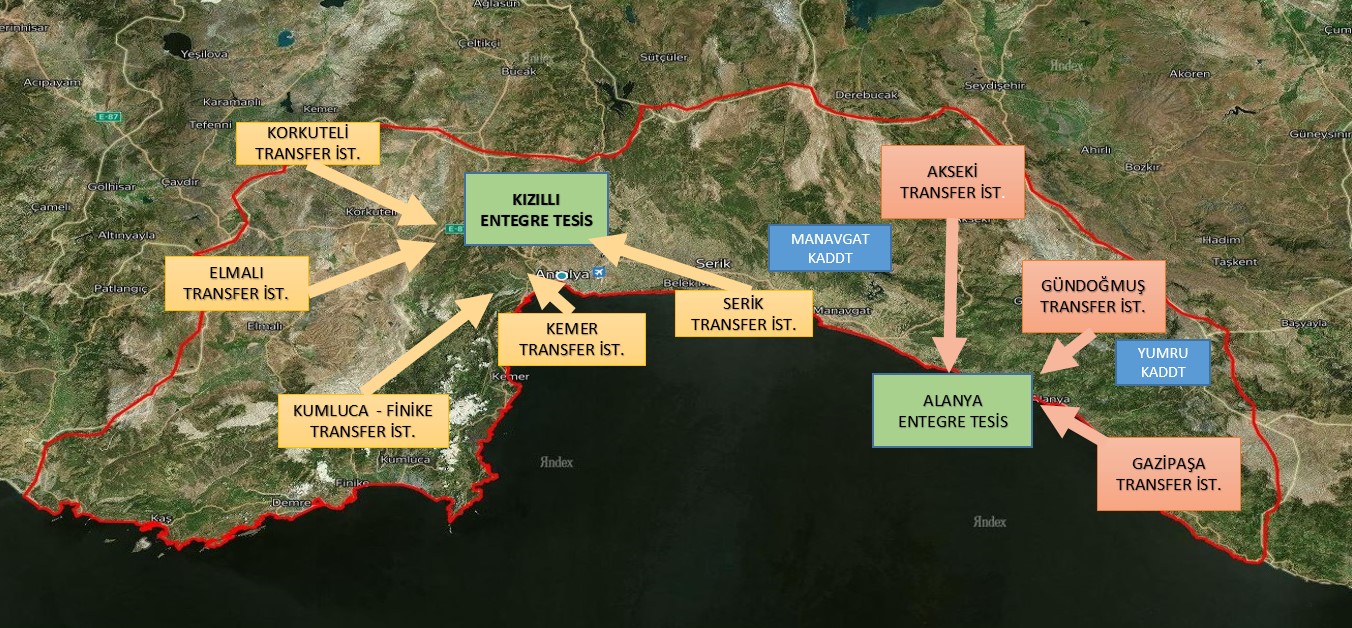
GÜNEŞ ENERJİ SANTRALLERİ
Belediyemize ait, Döşemealtı Çıplaklı Güneş Enerji Santrali, Döşemealtı Dağbeli Güneş Enerji Santralleri (A,B,C,D,E,F,G Enerji Santralleri) , Korkuteli Bozova Güneş Enerji Santralleri (Bozova 1, 2.3 ve Bozova 4), Hizmet Binası, Tramvay Atölye Binası Güneş Enerji Santralleri ve Korkuteli Sülekler Off Grid Güneş Enerji Sistemi olmak üzere olmak üzere toplam 9,444 MW kurulu güce sahip Güneş Enerji Santrali (GES) bulunmaktadır. Mevcutta bulunan GES ile toplam yaklaşık 9.880 ton CO2 azaltımı sağlanmaktadır.
|
ANTALYA BÜYÜKŞEHİR BELEDİYESİ GÜNEŞ ENERJİ SANTRALLERİ |
|||||
|
ÇATI ÜSTÜ + ARAZİ TİPİ GÜNEŞ ENERJİ SANTRALLERİ |
KURULU GÜÇ (MWe) |
YILLIK ORT. ENERJİ MİKTARI (MWh/Yıl) |
AYLIK ELEKTRİK İHTİYACI KARŞILANABİLECEK ORT. HANE SAYISI |
AZALTILAN KARBON EMİSYON MİKTARI(ton CO2e) |
KARBON YUTAĞI AĞAÇ SAYISI |
|
TOPLAM |
9,444 |
16.872 |
6.135 |
9.880 |
23.030 |
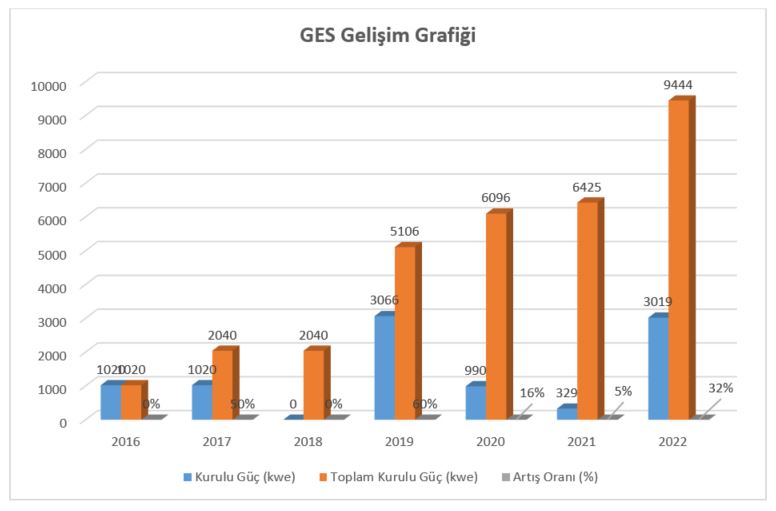
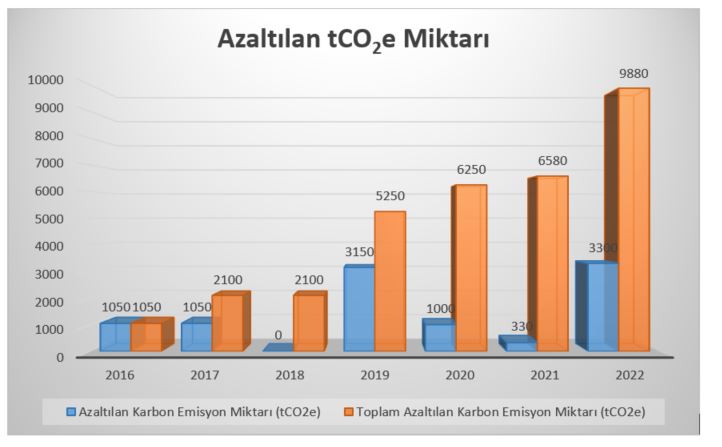
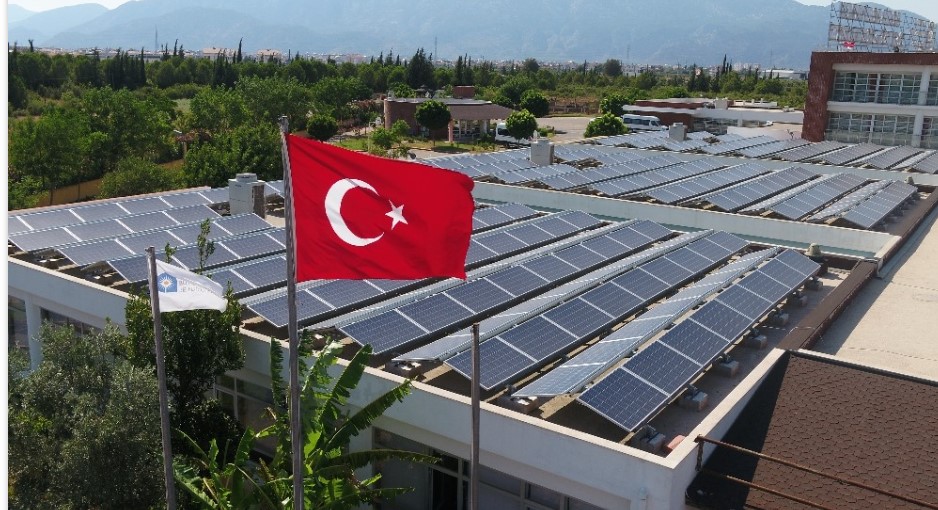
Döşemealtı Çıplaklı da yer alan Güneş Enerji Santrali, Antalya Büyükşehir Belediyesi Özel Eğitim Okulu ve Rehabilitasyon Merkezi çatı üstüne kurulmuştur. «Engelleri Güneşle Aşıyoruz» projesi kapsamında yapılan santralden elde dilen enerji ile, ilgili dağıtım şirketine hem saatlik mahsuplaşma yapılarak hem de satılarak rehabilitasyon merkezindeki çocuklarımızın ihtiyacı karşılanmaktadır.
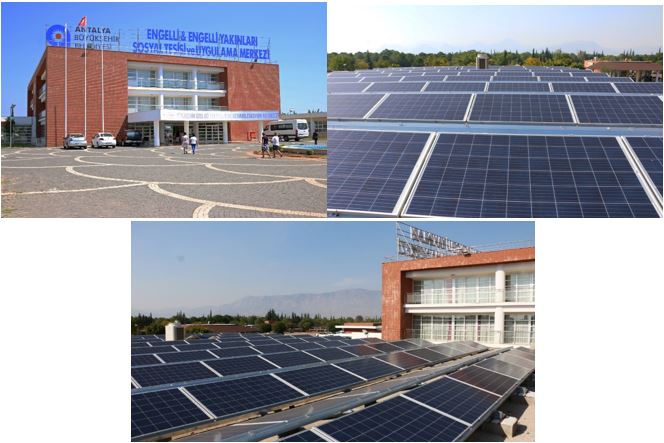
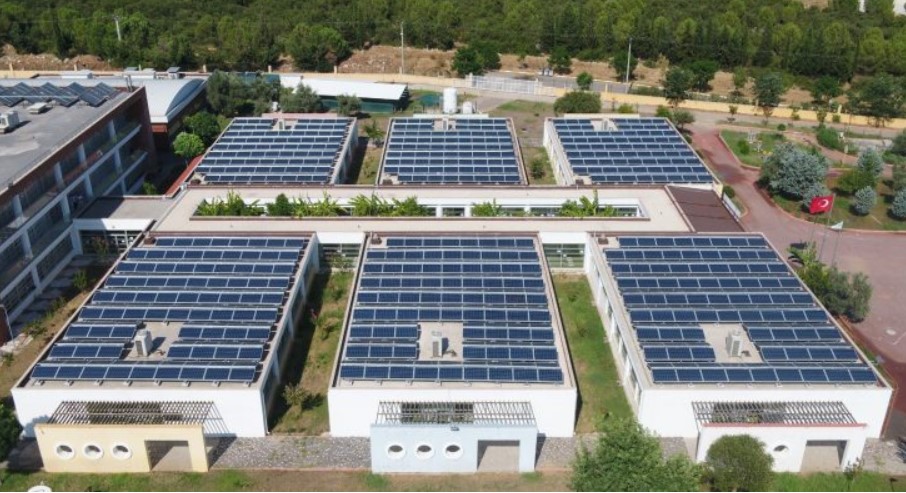
Döşemealtı Dağbeli de bulunan güneş enerji santralleri ile Çiftçi girdi maliyetlerini düşürmek amacıyla Belediyemize ait 4,86 MW’lık GES tesisimizde ürettiğimiz enerji ile 51 sulama kooperatifimizin enerji ihtiyacının ortalama %74’ünü karşılamaktayız.
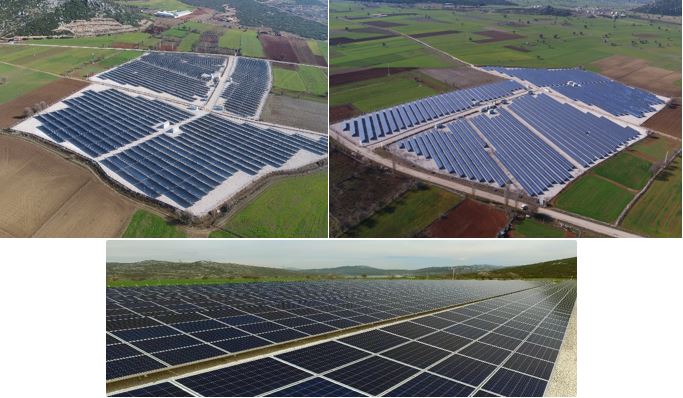
Korkuteli Bozova da bulunan ASAT a ait Bozova-1, Bozova-2, Bozova-3 ve Bozova-4 güneş enerji santralleri ile elde edilen enerji, ilgili dağıtım şirketine mahsuplaşma sağlanarak, içme suyu, atık su hizmetleri ve idari bina elektrik ihtiyaçlarının karşılanmasında kullanılmaktadır.
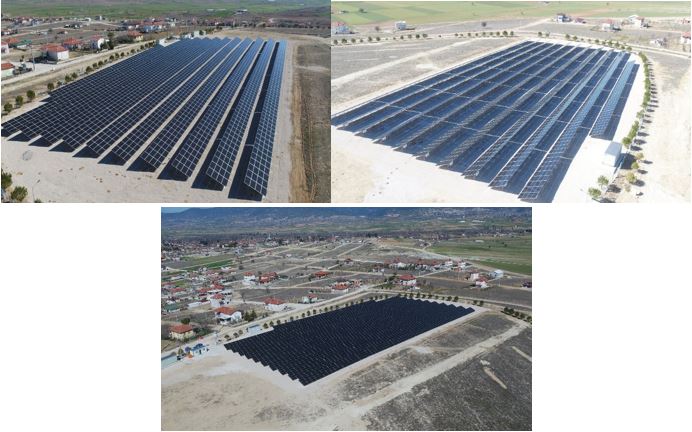
Antalya Büyükşehir Belediyesi’nin Hizmet Binası ve Antalya Ulaşım A.Ş. binasına kurduğu çatı tipi güneş enerji santralleri (GES) elektrik üretilmektedir. Toplamda 330 kW saat enerji üretimi ve 400 kW saat enerji depolaması ile Büyükşehir Belediyesi Türkiye’de enerjisini üreten ve depolayan ilk belediye olmuştur.
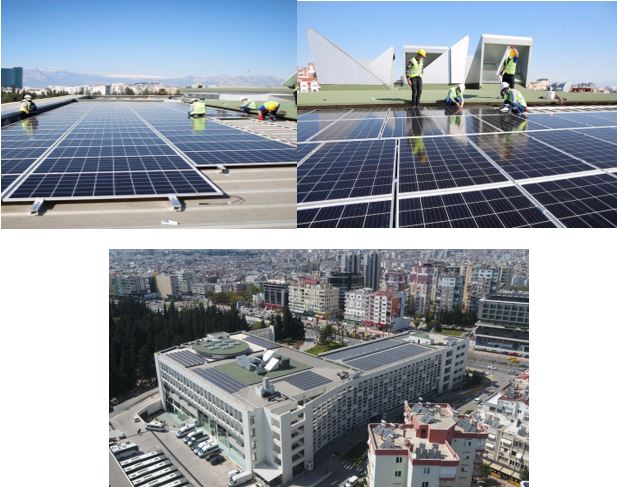
Güneş enerji santrallerinin doğaya katkıları ve çevresel etkiler:
Çevre sorunları ve iklim değişikliği ile mücadelede, fosil yakıtlara bağlılığın azaltılması için yenilenebilir enerji kaynaklarının kullanımının arttırılması büyük önem arz etmektedir.
Sınırsız, temiz, yenilenebilir enerji; Güneş enerjisi en bol ve hazır enerji kaynağıdır. Fosil yakıtlar yenilenemeyen ve sınırlı enerji kaynaklarıdır. Fosil yakıtlar hava kirliliğine sebep olmakla birlikte küresel ısınmanın en büyük kaynağıdır. Güneş enerji santralleri kurulum sonrası herhangi bir emisyon oluşumuna yol açmaz. Hava kirliliği yaratmaz.
Hava kirliliği ve küresel ısınma; Fosil yakıtlarla atmosfere verilen karbondioksit, metan gibi gaz ve çeşitli kimyasallar hava kirliliğine ve sağlık sorunlarına da yol açmakla birlikte sera etkisini de artırmaktadır.
İklim değişikliği, canlı yaşamı; Sera etkisinin artması, iklim değişikliği, yükselen deniz seviyeleri, aşırı hava olayları, kuraklık, aşırı sıcaklık artışı gibi birçok olumsuz olaylara sebep vermektedir. Özellikler kömür ve petrol gibi fosil yakıtlardan havaya atılan kükürt dioksit, azot oksitler ve karbon gazları yağmur damlaları ile birleşerek asit yağmurlarına yol açar. Asit yağmurlarının zararı ormanlar ile sınırlı olmayıp, canlı varlıkların yanı sıra cansız varlıklar üzerinde de kalıntı bırakmaktadır. Güneş enerji santralleri ile yenilenebilir enerji kaynaklarını güçlendirmek, karbon emisyonunu düşüreceği için iklim değişikliği üzerindeki etkilerin azaltılması sağlanır.
Su kaynaklarının korunması ve su kirliliği; Fosil yakıtlar ile elde edilen enerji üretiminde enerji santrallerinin yol açtığı çevresel sorunların yanında santrallerin de sistemlerin çalışması için büyük miktarlarda suya gereksinim vardır. Bu durum, su kaynaklarının azalmasına sebep olmaktadır. Güneş enerji santrallerinde enerji üretimi esnasında herhangi bir suya ihtiyaç yoktur. Böylelikle GES le ile geleneksel yöntemler ile elde edilen enerji üretim santrallerine kıyasla su kaynaklarının korunması sağlanır.
Alanya, Türkiye'nin Akdeniz Bölgesi'deki Antalya iline bağlı bir turizm ilçesidir. Şehir merkezine uzaklığı 154 kilometredir. Türkiye'nin güney sahillerinde bulunan Alanya, 1.598,51 km²'lik bir alana sahiptir ve 2015'te nüfusu 291.643 kişidir.
Daha iyi bir kullanıcı deneyimi için geliştirdiğimiz mobil uygulamamıza göz atın